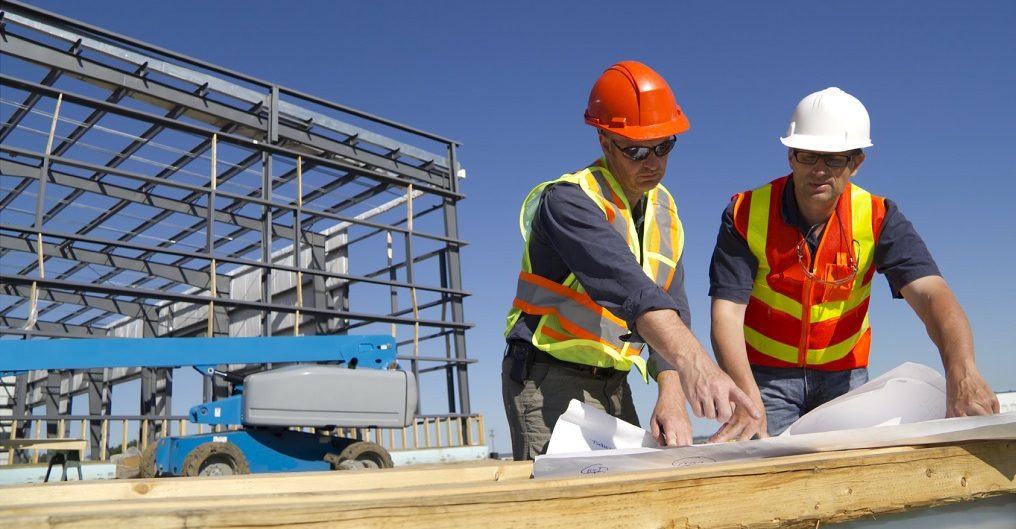In short
- What is Lean Construction? Lean construction is a way to manage building projects by cutting waste and adding more value for clients. It focuses on teamwork, making improvements, and treating workers with respect.
- What Are the Benefits of Lean Construction? By reducing inefficiencies, lean construction helps projects finish on time, improves the quality of the work, makes workers happier, and reduces risks.
- How Can Teams Implement Lean Construction Philosophy? Teams can adopt lean construction by empowering workers, pursuing continuous improvement, maintaining equipment proactively, using pull scheduling, and aligning goals with client priorities.
Most construction companies want to deliver the best possible results for their clients while expending the least possible resources. Yet, the construction industry has traditionally been littered with waste and inefficiencies. Today, some of the most successful companies use lean construction philosophy to guide their operations. Companies that do regularly impress clients, maintain high morale and create high-quality structures.
Many industry professionals have heard of lean construction, but they may not know what exactly it is or how they can apply it effectively. Let's take a look at the basics of lean construction and its benefits below.
What Is Lean Construction?
Lean construction is a relationship-focused production management system that aims to eliminate waste from the entire construction process and deliver greater value to clients.
The method has its roots in the Toyota Production System. First developed in Toyoda Automatic Loom Works in Japan in the 1920s and later implemented in Toyota automobile manufacturing facilities after World War II, the system focused on providing greater customer satisfaction while reducing waste and giving workers more meaningful jobs. Toyota's strategies were found to be so successful that lean concepts were adapted for use outside manufacturing.
In the United States, lean construction has become heavily associated with tools like just-in-time inventory, in which companies receive materials on an as-needed basis. However, as a philosophy, lean construction involves much more than effective inventory management.
Lean construction offers a framework for improving the entire construction process, from design through completion. The tenets of lean construction include:
- Continuous improvement: Companies using lean construction practices are open to new ways of doing things and are always looking for ways to improve.
- Waste removal: Lean construction companies work to reduce physical waste as well as wasted time and potential. This could mean ensuring work is finished correctly the first time, scheduling to avoid downtime and, of course, using just-in-time inventory management.
- Client satisfaction: In lean construction, every decision and process improvement relates back to the individual client's goals and priorities.
- Respect for people: Companies using lean construction recognize that workers can perform better when they're encouraged to collaborate, shown respect and given the freedom they need to solve problems and guide the process.
In order to meet goals, lean construction also focuses heavily on planning and standardization.
What Are the Benefits of Lean Construction?
Lean construction transforms nearly every stage of the construction process, requiring teams to work together more closely and build innovation into every project. Although how much a company gets out of lean construction depends on how the philosophy is implemented, potential benefits could include:
- Reduced Waste: Lean construction minimizes both physical waste and wasted time. This includes just-in-time inventory supported by AI forecasting and material reuse and recycling.
- On-time project completion: By cutting out inefficiencies, lean construction allows teams to finish projects more quickly, even with fewer workers on-site. This is particularly appealing, as the construction industry labor shortage makes deadlines harder to meet.
- High-quality work: Cloud-based platforms allow for standardization and improved communication, which means teams make fewer mistakes and produce exceptional results.
- Increased worker satisfaction: When workers have more control over the process and waste less time on unnecessary tasks, they are more likely to enjoy their jobs and put in a full effort.
- Better risk management: Companies that embrace lean construction plan for problems before they occur. As when creating a contingency plan, this reduces panic and ensures leaders make the best possible decisions when roadblocks occur.
How Can Teams Implement Lean Construction Philosophy?
Often, companies focus too much on using a certain tool or procedure in an attempt to increase efficiency. But lean construction is a philosophy, not a step-by-step process. This means the best way to obtain the benefits of lean construction is to apply lean ideas and methods at every level of an organization and at every stage of construction.
Here are a few things construction teams can do to begin.
Give Workers More Autonomy
Workers know their jobs better than anyone else. Show workers the respect they deserve by encouraging them to solve problems, work together and offer suggestions for improvement. A team can build this relationship-based work culture by holding lean trainings that incorporate discussions and give volunteer facilitators, not just management, the opportunity to lead.
Embrace Continuous Improvement
Teams looking to benefit from lean construction should constantly evaluate their existing processes for areas that need improvement. Look for inefficiencies in transport, scheduling, work quality, inventory, processing, movement and more.
Practice Preventative Maintenance
Maintain the processes and equipment that projects depend on through regularly scheduled maintenance. On-demand work orders typically take twice as long to complete as preventive maintenance tasks, effectively doubling labor costs when issues aren't addressed proactively. Lean construction emphasizes managing smaller maintenance expenses early to prevent major problems that can derail and delay business operations.
Use Pull Scheduling and Planning
To minimize downtime at the worksite, companies should always have contractors schedule their work and coordinate with those who will pick up the job after them. Pull planning bases scheduling on when prerequisite elements will be completed and requires someone to monitor how the project is progressing.
Set Goals Based on Client Priorities
In lean construction, every decision should be rooted in maximizing value for the client. If there's a part of the process that fails to add value, it should be eliminated. Teams should plan to meet with clients early and set goals based on the client's goals.
A Better Way to Tackle Construction
Lean construction is no longer just a trend—it’s a necessity for companies that want to stay competitive in a fast-changing industry. When implemented thoughtfully, this philosophy allows construction teams to complete jobs more efficiently and more successfully, all while making clients and workers happy.
 Holly Welles is a freelance writer who covers construction and real estate innovations for publishers across the web, including NCCER and Constructible. She also runs her own residential real estate blog, The Estate Update.
Holly Welles is a freelance writer who covers construction and real estate innovations for publishers across the web, including NCCER and Constructible. She also runs her own residential real estate blog, The Estate Update.
